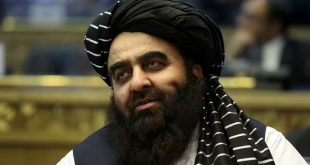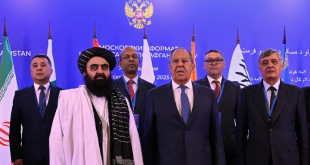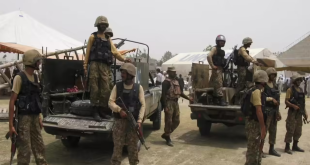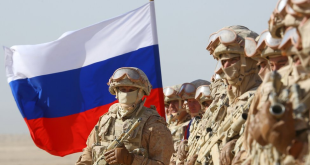by Elenoire Laudieri
Afghanistan continues to experience one of the world’s most severe humanitarian crises, with more than 22.9 million people — that is, over half of the Afghan population — in need of humanitarian assistance. Currently, 12.6 million people are facing acute food insecurity, and 7.8 million children under the age of five are suffering from severe malnutrition.
Nowhere in the world are women’s rights trampled upon as in Afghanistan.
Since returning to power, the Taliban have issued more than 70 decrees imposing all kinds of restrictions on women. Women are required to cover their bodies and faces in public and may not move freely without being accompanied by a male guardian.
Women have also been completely excluded from the legal system, which has been virtually dismantled, with the suspension of the 2004 constitution and the loss of judicial independence.
In the West, there had been an expectation that the so-called pragmatic members of the Taliban regime would succeed in restoring at least a minimum of decent living conditions for women. They had promised that secondary schools for girls — closed for more than 1,400 days — would be reopened, that segregationist policies against women would be repealed or reformed, and that authoritarian and repressive governance would be eased.
None of this has happened. The pragmatic Taliban have thus lost credibility, marginalized by the Emir, Haibatullah Akhundzada, who has used not only financial leverage but also the most radical and discriminatory decrees against women to undermine the pragmatists’ openings toward the West and reassert his full centrality in governance.
Relations with the West will remain at a standstill, if not deteriorate further. Few European diplomats today expect significant developments in the short term with the Emirate. On the contrary, the perception is quite the opposite, to the point that some countries are downsizing their diplomatic presence in Doha, the capital of Qatar, where the Taliban have established their international diplomatic office.
While the West, frustrated by the meagre results in dealing with a regime with many faces but seemingly immovable in its policies of women’s segregation, pulls back diplomatically, Asian countries are heading in a different direction. At least 17 countries currently have diplomatic missions in Taliban-governed Afghanistan, while Taliban-appointed “chargés d’affaires” represent the country in most Asian capitals. The normalization of diplomatic relations with the Taliban after their takeover in 2021 is taking place gradually, but Russia has decided to move ahead with no scruples, formally recognizing the Emirate. It is the first country to do so, and very likely not the only one to come.
Ties between regional countries and the Emirate have also been strengthened by the recent decision of the International Criminal Court (ICC) judges to issue arrest warrants for Haibatullah Akhundzada, the Taliban’s supreme leader, and Abdul Hakim Haqqani, the head of the Supreme Court. According to the ICC judges, there are sufficient grounds to believe that they committed — by ordering, inducing, or encouraging — the crime of persecution “against girls, women, and other persons who do not conform to the Taliban’s policy on gender and identity.” These include “acts of direct violence, but also systemic and institutionalized forms of harm, including the imposition of discriminatory social norms.”
The warrants for Haibatullah Akhundzada — the “Leader of the Faithful,” who from Kandahar, Afghanistan’s second-largest city, dictates the Taliban’s hardline and isolationist policies — and for Abdul Hakim Haqqani, only partially disrupted the recent celebrations with which the Taliban welcomed Moscow’s recognition and marked four years of power.
For the Emirate’s spokesperson, in fact, the Taliban “do not recognize any institution called the International Criminal Court, nor do we have any obligations toward it,” while the decision to “attribute inhuman and oppressive characteristics to the laws of Islamic Sharia” demonstrates only “open hostility and hatred toward the sacred religion of Islam.”
The arrest warrants have been welcomed by civil society, the Afghan diaspora, and many human rights organizations, for their symbolic and practical value and the clear message they convey. Many regional countries will ignore them, but for others they may act as a deterrent against potential normalization of relations. Inside Afghanistan, however, the effects are more controversial, since the warrants reinforce the Taliban’s perception of still being at war with the West, leading also to a further tightening of repression.
 Afghanistan Times Latest News and Analysis from Afghanistan and the Region
Afghanistan Times Latest News and Analysis from Afghanistan and the Region




